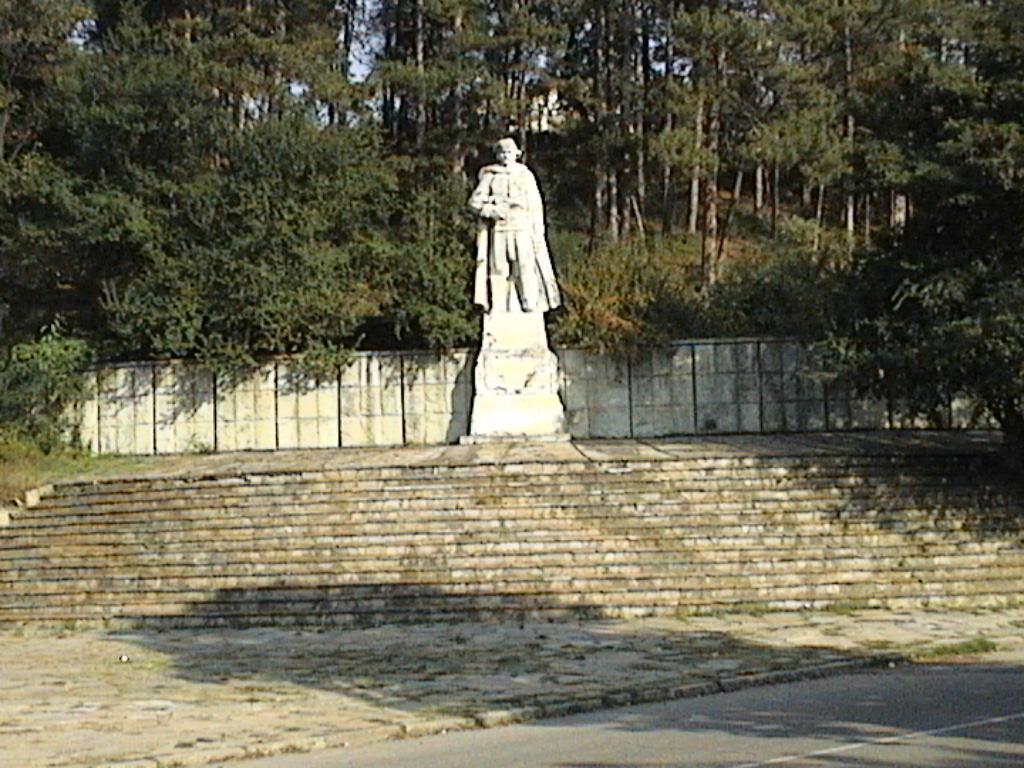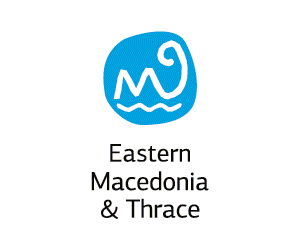Reisesführer
East Macedonia & Thrace
Captain Petko Мonument in the town of Krumovgrad

The monument was erected in memory of the legendary Thraciam revolutionary Captain Petko Voivoda.The monument represents the hero on a pedestal. The height of the figure without the pedestal is 4.5 meters in full size. It is made of white stone. The sculptor of the monument is Peter Ivanov Dimitrov from Sofia. It was opened on March, 10th 1975.
Petko Kiryakov was born on December 18th, 1844 in the Bulgarian village of Dogan Hissar (now Aisymi), which was located in Western Thrace, present-day Greece. His family was large. The Turks killed his brother and his cousin in front of his eyes and that made sixteen-year-old Petko Kiryakov organize a small group ,with which to fight the Turks in his region. The young man quickly became a defender of the rights of all poor people -Bulgarians, Greeks and Turks. Soon the name of the youngest Rhodope leader passed from mouth to mouth while the bold and unexpected forays of Petko’s groop made the Turkish beys and pashas tremble with fear.
The head of the intrepid leader was estimated at 10,000 pennies, but he could not be captured.
The glory of Petko Kiryakov drifted throughout the Aegean Sea and reached as far away as Greece. In 1864, Captain Petko went to Capri island to seek assistance from the great Italian patriot Giuseppe Garibaldi to aid Cretan rebels. Petko lived in Garibaldi’s home for a few months and they became close friends. ). Garibaldi helped Petko organize the well-known "Garibaldi Battalion" in Cretan Revolt, consisting of 220 Italians and 67 Bulgarians, who heroically fought the Ottomans on Crete. Petko voivoda and the detachments in his command bravely defended the island.. Petko Voivoda again acted as a courageous leader and was assigned to military rank of Kapitan ( Captain).
After the uprising failed, he returned in the Rhodopes and in 1873 created the first Bulgarian - Rhodope detachment called "Defence," which aimed to protect the Bulgarian people and to help its development, both religious and political. Much of the “fines” that Petko imposed on Turkish notables for their iniquities, were donated to churches, schools and given as aid to the poor.
With this detachment Petko was included in the Russo-Turkish War (1877-1878). His unit liberated Maroneia from Turkish yoke in December 1877, and established a Christian government there. For 3 months he fought against the Turks and saved the local population from Turkish molestation. After that he took part in the liberation of the Rhodopes.
Captain Petko Voivoda died in 1900 at 56 years of age.
Captain Petko Voivoda become very famous and people spread the rumour that a bullet could never reach him. Once the Turks prepared to attack a village, but the villagers heard about this and sent a man to Petko Voivode.
Petko said to the man:
- Go now and tell the people that they have to take a bag and make it look like person person and the tie it tie the bell tower. Then you should wall up and leave a very narrow slot in the window,right below the bag.
The man quickly went back to the village and everything was done as commanded by the Petko Voivoda.
Then Petko came to the village and climbed on top of the tower. He was a very accurate shooter. He sat next to the slot and waited for the Turks. When they approached, he shot and hit one of them.
They looked to see where the bullet came from. They beganshooting at the bag because they thought it was a man. They went on shooting for a while and finally decided that it was all over. They wanted to know who shot at them though.
As Petko had instructed, they were told that it was Captain Petko Voivoda and that the village was his.
They were just about to start plundering the houses when they heard the bell again. The next second, a Turk threw himself on the ground because a bullet had reached him. They started shooting at the bag. Nobody saw the narrow slit through which Petko was shooting.
Scared to death, the Turks left. They truly believed that a bullet could not catch Captain Petko Voivoda and never again dared to come close to this village.
His revolutionary work has been commemorated with numerous monuments all around Bulgaria, as well as in his native village in modern Greece and on a hill in Rome, where a monument of Garibaldi also stands.
ADDRESS
Keine Informationen verfügbar.Kontaktinformationen
Keine Informationen verfügbar.





